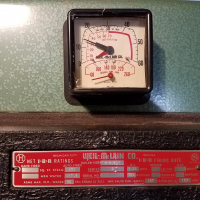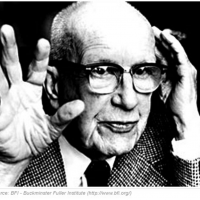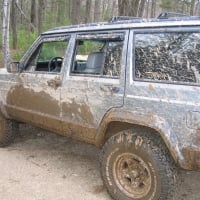Welcome! Here are the website rules, as well as some tips for using this forum.
Need to contact us? Visit https://heatinghelp.com/contact-us/.
Click here to Find a Contractor in your area.
Does cast iron boiler efficiency decrease over time?

Shahrdad
Member Posts: 120
I have an almost 50 year old cast iron WM boiler which is labelled as having an input of 245,000 output of 196,000. This boiler has run all these years with return temperatures between 90s and low 120s degrees, and it has never had a loop installed to keep the return temperatures above condensation.
I am wondering if over time with the aging and rusting of the boiler, the efficiency of the boiler decreases, or is the boiler still able to put out something close to the original claimed heat output?
Thank you all, and Happy Valentine's Day!
S.
I am wondering if over time with the aging and rusting of the boiler, the efficiency of the boiler decreases, or is the boiler still able to put out something close to the original claimed heat output?
Thank you all, and Happy Valentine's Day!
S.
0
Comments
-
New efficient boilers get some of their higher efficiency by having thinner castings.
I figure my Weil-Mclain number 57 has lost so much to rust over the last 70 years that it is now 120% efficient. (If the Heat Pump and eMPG people can make up numbers, then I can to).
Old boilers never die, they just rust away.I DIY.5 -
-
-
Surface rust/carbon buildup on the sections, sludge and sediment buildup inside the heat exchanger, dirty/rusty burner tubes, old gas valve, etc will certainly contribute to a measureable decrease in efficiency.Contact John "JohnNY" Cataneo, NYC Master Plumber, Lic 1784
Consulting & Troubleshooting
Heating in NYC or NJ.
Classes1 -
I don't think it's oversized. It's a 1970s Weil-McLain with an input of 245K, output of 196K, and Net IBR of 170.4. It's pumped with the original 1970s Taco 110. It's connected to the home's original 1897 gravity system with cast iron radiators. The house is a 2 1/2 story brick house somewhere between 5,000 and 5,500 square feet. The attic has been insulated and there are storm windows. For an old house, it's not too leaky either.pecmsg said:Clean boiler in relatively good shape. A small %.
Bigger Question is how oversized it is?
With temps at zero degrees or just a bit below, the boiler runs continuously, producing a supply temp of 132 and a return of 119-120 degrees. When the outside temp has warmed up to 6 or 7 degrees, the boiler starts to cycle off and on. The house has stayed at a comfortable 70 degrees.
The reason I was asking the question is that I am considering replacing the almost 50 year old boiler with a Viessmann Vitocrossal CU3A rated at a max input of 199 and Net AHRI rating of 161. Watching my small cast iron boiler run non-stop at these temperatures, I'm wondering whether the Vitocrossal is going to have enough heating capacity for temps such as this.
If my old boiler is still giving me the full 196K output, but has to run continuously at these temps, I'm starting to worry that the Viessmann might not be big enough for the house. If the old boiler is actually producing something lower than what it was originally rated at, the Viessmann might be adequate.0 -
that boiler shouldn't see return water below 140°f.Shahrdad said:
With temps at zero degrees or just a bit below, the boiler runs continuously, producing a supply temp of 132 and a return of 119-120 degrees. When the outside temp has warmed up to 6 or 7 degrees, the boiler starts to cycle off and on. The house has stayed at a comfortable 70 degrees.pecmsg said:Clean boiler in relatively good shape. A small %.
Bigger Question is how oversized it is?
What are the emitters, baseboard or cast iron?
Have a accurate heat load loss performed, with those operating temperature Yes it is oversized. If it heats OK consider a condensing boiler.
0 -
The way the boiler was piped originally (no bypass loop or anything) it's been seeing return temperatures of below 130 for almost 50 years. Most of the winter, the supply is in the upper 90s and return in the 80s. The emitters are ornate cast iron radiators. I think it's a matter of time before the boiler springs a leak, as there is always a rust powder on the bottom of the boiler and in the burner tubes.pecmsg said:
that boiler shouldn't see return water below 140°f.
What are the emitters, baseboard or cast iron?
Have a accurate heat load loss performed, with those operating temperature Yes it is oversized. If it heats OK consider a condensing boiler.
The previous owner had a heat loss done before this boiler was chosen in the early 1970s. I should add that all my neighbors, many with houses half the size of mine, have boilers that are 1 1/2 times bigger than mine, and most of them are recent installations!
The Viessmann Vitocrossal I'm considering is a condensing boiler. But how can my current boiler be oversized if it has to run continuously at design temperatures of zero degrees to keep the house at 70 degrees? It's been heating the house just fine, even with these low temps. However, with outdoor temps just below zero, I have never seen a supply temp higher than 132 on my boiler.
Thanks!!
0 -
I should have continued it on that post. I was pretty much set on the Viessmann that is just slightly smaller than what I have now, but seeing my boiler operate nonstop at 0 degrees is giving me second thoughts.Youngplumber said:@pecmsg we've already had this conversation in a different post.
0 -
If zero degrees is your design temp, it seems like it's doing what it is supposed to do.
It works its butt off at zero degrees, anything above makes it work less....anything colder and it still works its butt off but can't keep the house at 70 degrees.0 -
Hey there @Shahrdad . I'm interested where you went with this. Did you go with the size you were looking at? Has it been enough? Or was it undersized? Did you get a heat load / radiation calc done? How has everything turned out?
For posterity, I'd echo most of what folks have noted here, with a caveat or "Devil's Advocate" opposing thought.
First, yes, lime, scale, or mineral deposits, and rust, can reduce heat transfer efficiency. Soot buildup can reduce both combustion efficiency and heat transfer efficiency from the other side. Burners and actuators can also degrade over time and may need maintenance or replacing. So you can lose both capacity and efficiency over time.
On the flip side, thermodynamics says heat energy has to go somewhere. So if a combustion analysis shows a high combustion efficiency, and your boiler's space isn't getting significantly hotter than it used to, well, that heat has to go somewhere ... it might be going into the water. Also, the soot can be cleaned out, and the scaling can vary significantly depending on water quality, and might even be reversed (somewhat) with some good treatment and flushing. So it's entirely possible the 50-year-old system might be operating somewhat close to its original capacity and efficiency if its been properly maintained. Rust is your biggest concern...
Still interested what you wound up doing, what kind of a reduction in bills you saw, and what impacts you saw on your space comfort.0 -
We have a similar situation in our old house with cast iron radiators and low water temps. The reason you can heat your house with 130 degree water is that you have a massive amount of radiator surface area. See this chart that tells you how many BTU's your radiators will throw off per sq ft of surface area at a given temperature. And apparently, based on your house's heat loss, you have enough radiator surface to keep up with that heat loss with the radiators at that water temp. You can use the chart to calculate for yourself how much radiator surface area you have, and from there to calculate total BTU's/hr radiated for a given water temperature.Shahrdad said:
But how can my current boiler be oversized if it has to run continuously at design temperatures of zero degrees to keep the house at 70 degrees? It's been heating the house just fine, even with these low temps. However, with outdoor temps just below zero, I have never seen a supply temp higher than 132 on my boiler.
https://www.expressradiant.ca/pdfs/product_classic_sizing_how_to.pdf
You might also be interested in this article by @RonBeck expaining why old cast-iron radiator systems tend to run at low water temps:
https://www.usboiler.net/outdoor-reset-doesnt-work.html
0 -
Hydronic heat , you size the boiler to the heat loss of what you are heating .. The larger size rads are a bonus allowing you to run the system with lower temperatures .. Condensing boilers shine on this system...I have enough experience to know , that I dont know it all0
-
Also, you can calculate your heat loss quite accurately if you have records from a previous winter's oil deliveries. From one month's oil consumption in mid-to-late winter, and from weather records in your area during that period, you can do the math yourself fairly easily. And it will be more accurate than any contractor estimates based on assumed R-values, etc.
https://www.greenbuildingadvisor.com/article/replacing-a-furnace-or-boiler0 -
(This comment removed. Software glitch / Double entry of same comment.)0
-
One would also want to look at run time and cycle efficiency. I suspect even brand new cast iron boilers being installed today are running down in the 70% range
When a boiler with a fixed output is connected to a multi-zoned system, the boiler short cycling drags down the efficiency. In addition the short cold run cycles shorten the life expectancy. Oversizing still runs rampant as we see here almost daily.
Modulating boilers better deal with ever changing loads
It is not just the yellow sticker on the side, or a combustion analysis showing burner efficiency that needs to be consideredBob "hot rod" Rohr
trainer for Caleffi NA
Living the hydronic dream0 -
Is this oil or gas? I am curious as to what your stack temperature is? Does this boiler use baffles and are they still there and in what kind of shape are they in?0
Categories
- All Categories
- 85.2K THE MAIN WALL
- 3.1K A-C, Heat Pumps & Refrigeration
- 55 Biomass
- 424 Carbon Monoxide Awareness
- 73 Chimneys & Flues
- 1.9K Domestic Hot Water
- 5.2K Gas Heating
- 129 Geothermal
- 160 Indoor-Air Quality
- 3.3K Oil Heating
- 61 Pipe Deterioration
- 884 Plumbing
- 5.9K Radiant Heating
- 375 Solar
- 14.7K Strictly Steam
- 3.2K Thermostats and Controls
- 58 Water Quality
- 49 Industry Classes
- 89 Job Opportunities
- 28 Recall Announcements







